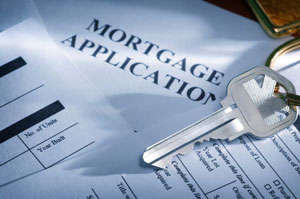Conventional Versus FHA Loans
By Steven Roberts Updated on 7/19/2017 This page describes two of the most popular loan types: conventional mortgage loans and FHA mortgage loans. To determine which loan best suits your circumstances, take some time to consider the pros and cons of each.
This page describes two of the most popular loan types: conventional mortgage loans and FHA mortgage loans. To determine which loan best suits your circumstances, take some time to consider the pros and cons of each.
FHA vs. Conventional Mortgages
The differences between an FHA loan and a Conventional loan include:
- FHA home loans are for typically for those with marginal/low credit scores and are looking for a low down payment (3.5%)
- Conventional home loans are typically for those with a high credit score and has a minimum of 5% for a down payment
FHA Loan Advantages
| Conventional Loan Advantages
|
FHA Loan Disadvantages
| Conventional Loan Disadvantages
|

The main advantage of an FHA mortgage loan is the qualification requirements that are less strict than those required with a conventional mortgage. A borrower with a lower credit score that would not qualify for a conventional home loan can sometimes secure an FHA loan without any issue.
However, FHA mortgage loans are also increasingly popular with borrowers with excellent credit, especially since the loan limits have increased in many parts of the country and the down payment required is lower.
See if you Qualify for an FHA Loan
FHA vs. Conventional Loan FAQ
Who should get an FHA Mortgage Loan?
Here are a few questions that you might ask yourself to determine whether or not an FHA loan is your optimal choice:
Do I have a low credit score?
One of the major advantages of FHA loans is their lenient credit requirements, which enable borrowers with less-than-perfect credit to secure mortgage loans.
Even borrowers who have filed for bankruptcy or undergone a foreclosure may still be able to qualify for an FHA loan, provided credit standing has since improved.
What if I cannot afford a large down payment?
FHA loans provide borrowers with a loan option that does not require a significant down payment. If you are unable to afford putting down a large sum for a down payment, you should consider taking out an FHA mortgage loan, since down payments can be as low as 3.5%.
Will an FHA loan cover the cost of my potential home?
The Federal Housing Administration determines loan limits by relative housing values; there are separate loan limits for every county. If your prospective residence costs more than the maximum limit for an FHA loan, you should consider an alternative.
Who should get a conventional mortgage?
For borrowers considering a mortgage that is not insured by the federal government, here are a few questions which you might ask yourself to consider whether a conventional loan would be right for you:
Do I need flexibility?
While FHA loans do not offer a variety of options when selecting loan terms, conventional loans give borrowers a plethora of options and can consequently be more customized to fit your circumstances. If you would like more freedom as far as loan options go, a conventional loan will provide just that.
How much does my potential home cost?
Conventional loans limits vary between conforming and non-conforming mortgages. Conforming conventional loans must follow Fannie Mae and Freddie Mac guidelines and thus are limited to $417,000 for single-unit residences.
On the other hand, non-conforming loans do not have a loan limit and allow borrowers to secure much larger loan such as a Jumbo loan.
Therefore, if the price of the home that you want to purchase exceeds the funds you could secure from an FHA lender or the regional FHA loan limit, you should consider a conventional mortgage.
Can I afford to make a large down payment?
Conventional loans require a minimum down payment of 5%. However, making a larger down payment can reduce interest rates on mortgage loan offers, thus benefiting those able to afford this option.
In addition, borrowers who make a down payment of 20% or more can circumvent Private Mortgage Insurance, further reducing the loan cost.
Do I qualify?
Conventional loans have rigid qualifications. In addition to requiring a stable income, conventional loans greatly factor in patterns in credit history when determining whether or not to approve a borrower.
As such, borrowers with damaged credit should consider other loan programs which may offer better interest rates to low credit borrowers.

Didn't find the answer you wanted? Ask one of your own.
-
 Refinancing a Conventional Loan
View More
Refinancing a Conventional Loan
View More
-
 Credit Score Requirements for Conventional Loans
View More
Credit Score Requirements for Conventional Loans
View More
-
 What is a Conventional Loan?
View More
What is a Conventional Loan?
View More
-
 Alternatives To a Standard Mortgage
View More
Alternatives To a Standard Mortgage
View More
-
 Making a Mortgage Decision: Conventional, FHA and VA Home Loans
View More
Making a Mortgage Decision: Conventional, FHA and VA Home Loans
View More
-
 Five Year Fixed Rate Mortgages Explained
View More
Five Year Fixed Rate Mortgages Explained
View More
Get a Free Quote! Get a Conventional Loan!
Related Articles
Ask our community a question.
Searching Today's Rates...

Featured Lenders
Lisa Stepp
RBS Citizens
Clifton Park, NY

